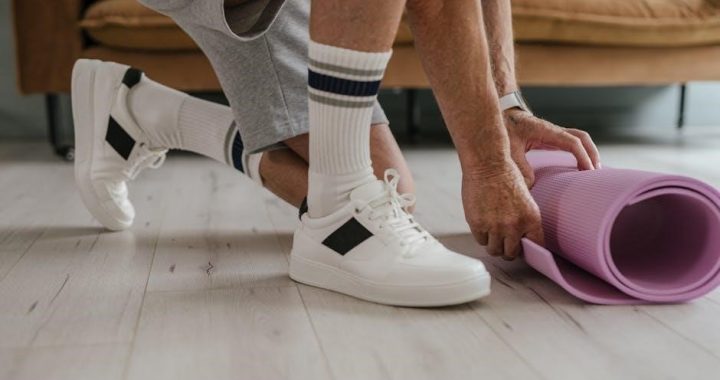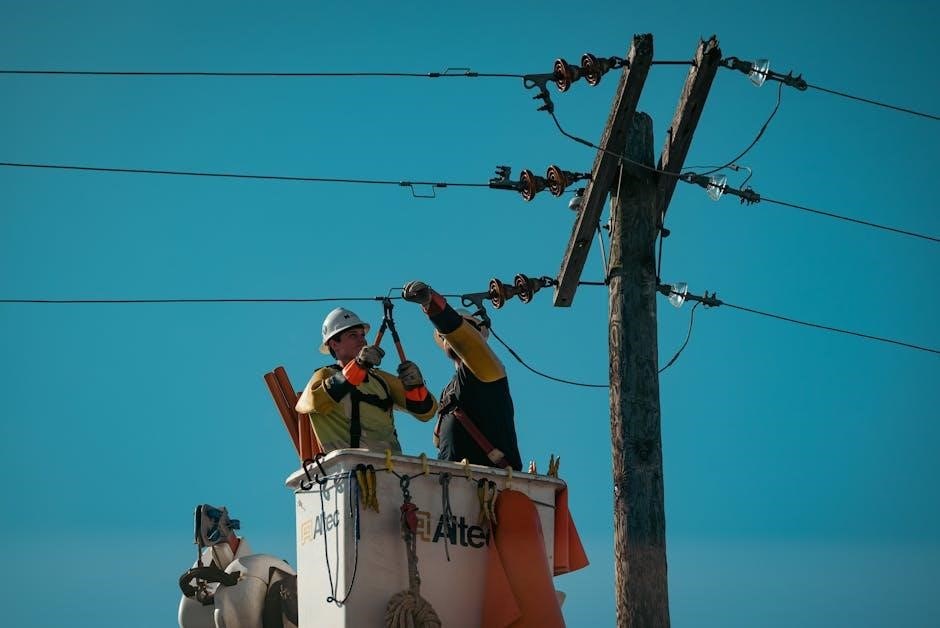The Section 8 Voucher Program in New Jersey provides rental assistance to low-income families, enabling them to afford private housing. Funded by HUD, it offers Housing Assistance Payments (HAP) to eligible households, helping them secure decent housing. Understanding 2024 voucher amounts is crucial for applicants and landlords to navigate the program effectively.
1.1 Overview of the Section 8 Voucher Program
The Section 8 Voucher Program is a federally funded rental assistance initiative designed to help low-income families access affordable housing in the private market. Participants receive Housing Assistance Payments (HAP), enabling them to pay a portion of their rent. The program allows families to choose suitable housing, with landlords receiving direct payments. It aims to bridge housing affordability gaps for eligible households in New Jersey.
1.2 Importance of Understanding Voucher Amounts in 2024
Understanding 2024 voucher amounts is essential for effective participation in New Jersey’s Section 8 Program. Accurate payment standards ensure affordable housing options for low-income families. Knowing these amounts helps applicants and landlords determine suitable rental properties and comply with HUD regulations. Staying informed about updates in voucher amounts is crucial for maximizing housing opportunities and maintaining program compliance in 2024.
Eligibility Criteria for Section 8 Vouchers in New Jersey
Eligibility for Section 8 vouchers in New Jersey is based on income limits and household size. Applicants must meet federal guidelines to qualify for rental assistance.
2.1 Income Limits for Eligibility in 2024
In 2024, income limits for Section 8 eligibility in New Jersey vary by household size; For example, a 1-person household must earn ≤$23,600 (very low income) or ≤$37,500 (low income). These limits are set by HUD and adjusted annually to reflect local economic conditions, ensuring assistance reaches those most in need while maintaining program accessibility.
2.2 Household Size and Its Impact on Voucher Amounts
2024 Income Limits by Household Size in New Jersey
In New Jersey, 2024 income limits for Section 8 vouchers vary by household size, ranging from $53,700 for 1 person to $95,150 for 8 persons, reflecting HUD guidelines.
3.1 Income Limits for 1 to 8 Person Households
For 2024, income limits in New Jersey range from $53,700 for 1-person households to $95,150 for 8-person households. These limits, set by HUD, determine eligibility for Section 8 vouchers and are adjusted annually to reflect economic changes, ensuring affordable housing opportunities for low-income families across the state.
3.2 Regional Variations in Income Limits
Income limits for Section 8 vouchers in New Jersey vary by region due to differences in housing costs. Areas like Bergen and Passaic counties have higher limits compared to Atlantic County, reflecting local economic conditions. These regional adjustments ensure that voucher amounts align with the cost of living in specific areas, providing equitable access to affordable housing statewide.

Payment Standards for Section 8 Vouchers in 2024
Payment standards for Section 8 vouchers in New Jersey are based on local rent levels, ensuring affordable housing options. Counties like Atlantic and Bergen/Passaic have specific rent limits, effective as of 2024.
4.1 Maximum Rent Allowed by Bedroom Size
In New Jersey, the maximum rent allowed under the Section 8 program varies by bedroom size. For example, a 0-bedroom unit may have a limit of $1,628, while a 4-bedroom unit could be capped at $3,421. These amounts are determined by HUD and reflect local rental market conditions, ensuring affordability and consistency across regions like Bergen/Passaic and Atlantic counties.
4.2 County-Specific Payment Standards
Payment standards in New Jersey vary by county, reflecting local rental market conditions. For instance, Bergen/Passaic and Atlantic counties have distinct payment standards, with Bergen’s 0-bedroom unit at $1,628 and Atlantic’s at $1,289. These county-specific amounts are set by HUD to ensure vouchers align with regional housing costs, providing accurate rental assistance across different areas.
Fair Market Rents (FMRs) in New Jersey for 2024
FMRs are rental amounts set by HUD for New Jersey, varying by county and household size. For example, Bergen/Passaic’s 0-bedroom FMR is $1,379, reflecting local market rates.
5.1 FMRs by County and Household Size
FMRs in New Jersey vary significantly by county and household size. For example, Bergen/Passaic’s 0-bedroom FMR is $1,379, while Atlantic City-Hammonton’s is $1,240. Household size impacts rates, with 4-bedroom units in Bergen/Passaic at $2,800 and Atlantic City-Hammonton at $2,654. Small Area FMRs (SAFMRs) apply to specific towns, offering more localized rental standards.
5.2 Small Area Fair Market Rents (SAFMRs)
SAFMRs are specialized rent standards applied to specific towns within New Jersey. For instance, Berkely Heights has SAFMRs of $2,070 for 2-bedroom units, $2,380 for 3-bedroom, and $3,630 for 4-bedroom. These localized rates ensure fair market rent adjustments, reflecting unique housing costs in targeted areas, unlike broader county-wide FMRs.

Bergen and Passaic Counties’ 2024 Voucher Amounts
Bergen and Passaic Counties’ voucher amounts vary by bedroom size and ZIP code. For example, ZIP code 07010 ranges from $1,628 for a 0-bedroom to $3,421 for a 4-bedroom.
6.1 Payment Standards for Bergen/Passaic, NJ HUD Metro Area
The Bergen/Passaic HUD Metro Area has specific payment standards for 2024. A 0-bedroom unit is $1,628, while a 1-bedroom is $1,914. Standards increase with bedroom size, reaching $3,421 for a 4-bedroom; These amounts are based on Fair Market Rents (FMRs) and regional cost adjustments, ensuring vouchers cover reasonable rental expenses in the area.
6.2 ZIP Code-Specific Rent Standards
Rent standards in Bergen/Passaic vary by ZIP code, reflecting local rental market conditions. For example, ZIP code 07010 has higher payment standards ($1,628 ⏤ $3,421) compared to ZIP code 07011 ($1,518 ⎼ $3,201). These adjustments ensure vouchers align with actual rental costs in specific areas, helping families find affordable housing within their preferred neighborhoods.
Atlantic County’s 2024 Voucher Amounts
Atlantic County’s 2024 voucher amounts are determined by the Atlantic City-Hammonton MSA FMRs, ensuring affordable housing options for low-income families through rental assistance programs.
7.1 Atlantic City-Hammonton MSA FMRs
The Fair Market Rents (FMRs) for the Atlantic City-Hammonton MSA in 2024 are essential for determining Section 8 voucher amounts. FMRs range from $1,769 for a 0-bedroom unit to $2,800 for a 4-bedroom unit, reflecting local rental market conditions. These rates, set by HUD, help ensure affordable housing options for low-income families in Atlantic County, aligning with program guidelines. Effective as of 2024, these FMRs guide voucher payment standards and rent limits for participants.
7.2 Specific Rent Standards for Atlantic County
Atlantic County’s 2024 rent standards for Section 8 vouchers are based on HUD’s FMRs. Effective November 1, 2024, the 0-Bedroom voucher amount is $1,769, 1-Bedroom is $1,914, 2-Bedroom is $2,200, 3-Bedroom is $2,728, and 4-Bedroom is $3,421. These standards ensure affordable housing options for low-income families, aligning with local rental market conditions and program guidelines.
Application Process for Section 8 Vouchers in 2024
The application process involves checking eligibility, gathering required documents, and submitting the application through designated agencies. Processing times vary, but approvals are based on HUD guidelines.
8.1 Steps to Apply for a Section 8 Voucher in New Jersey
Applicants must first determine eligibility based on income and household size. They then complete an application through a local PHA office. Required documents include proof of income, residency, and family composition. Once submitted, applications are reviewed and placed on a waiting list. Processing times vary, but priority is given to certain groups like the elderly and disabled. Approval leads to voucher issuance and housing search assistance.
8.2 Required Documents for Application
To apply for a Section 8 Voucher in New Jersey, applicants must provide specific documents. These include proof of income (pay stubs, tax returns), identification (driver’s license, birth certificates), Social Security cards, and residency documents. Additional paperwork, such as divorce or child custody records, may be required. All documents must be current and valid to ensure eligibility verification and smooth processing of the application.

Voucher Amounts by Unit Size and Location
Voucher amounts vary based on unit size and location. Payments increase with bedroom count, reflecting housing demand. Geographical differences in rent standards across New Jersey influence final amounts.
9.1 0-Bedroom to 4-Bedroom Voucher Amounts
Voucher amounts increase with bedroom size, reflecting housing demand. For instance, a 0-bedroom unit in Atlantic County is $1,769, while a 4-bedroom unit is $2,800. Bergen County’s vouchers range from $1,628 for a 0-bedroom to $3,421 for a 4-bedroom. These amounts are based on HUD’s Fair Market Rents and are effective as of specific dates in 2024.
9.2 Geographical Variations in Voucher Amounts
Voucher amounts vary significantly by location within New Jersey. Bergen and Passaic Counties have higher payment standards due to increased housing costs, with 4-bedroom vouchers reaching $3,421. Atlantic County’s vouchers are lower, at $2,842 for a 4-bedroom. ZIP code-specific rent standards further refine these amounts, reflecting local market conditions and ensuring vouchers align with area rental prices.

Payment Standards Calculation in 2024
Payment standards are calculated based on Fair Market Rents (FMRs) and comparable rents for similar units in the same area, ensuring vouchers cover housing costs effectively.
10.1 Factors Influencing Voucher Payment Amounts
Payment amounts are influenced by Fair Market Rents (FMRs), household size, income limits, and local rental market conditions. Small Area FMRs and comparable rents for similar units also play a role. Additionally, regional income limits and housing authority adjustments impact final voucher amounts, ensuring payments align with housing costs in specific areas of New Jersey.
10.2 Role of Comparable Rents in Payment Standards
Comparable rents determine fair market rates for similar units in the same area, ensuring voucher payments reflect local housing costs. By analyzing recent rental data, housing authorities set payment standards that balance affordability for tenants and profitability for landlords, maintaining program viability and attracting private landlords to participate in the Section 8 program.
Income Limits by County in New Jersey for 2024
Income limits vary by county, with Warren County HUD Metro FMR Area setting limits at $24,200 for 1 person and $45,650 for 8 persons. Bergen County limits differ, reflecting local economic conditions.
11.1 Warren County HUD Metro FMR Area Limits
Warren County HUD Metro FMR Area has specific income limits for 2024, ranging from $24,200 for a 1-person household to $45,650 for an 8-person household. These limits are part of the 2024 Affordable Housing Regional Income Limits and apply to the HUD Metro FMR Area covering Warren County.
These limits are essential for determining eligibility for housing assistance programs, including the Section 8 Voucher Program in New Jersey.
11.2 Bergen County Income Limits
Bergen County income limits for 2024 range from $53,700 for a 1-person household to $95,150 for an 8-person household. These limits are part of New Jersey’s Affordable Housing Regional Income Limits and are crucial for determining eligibility for housing assistance programs like the Section 8 Voucher Program.

Official Documentation and Resources
Official Section 8 documentation and resources in New Jersey are provided by agencies like Affordable Housing Professionals of New Jersey (AHPNJ) and NJHMFA, offering 2024 PDF guides and eligibility guidelines.
12.1 Accessing the 2024 Section 8 Voucher Amounts PDF
The 2024 Section 8 Voucher Amounts PDF is available through the New Jersey Housing and Mortgage Finance Agency (NJHMFA) and Affordable Housing Professionals of New Jersey (AHPNJ). This document, prepared in April 2024, details income limits, payment standards, and regional variations. It can be downloaded from official websites or accessed via local housing authorities to ensure authenticity and accuracy.
12.2 Key Agencies Providing Section 8 Information in NJ
Key agencies in New Jersey providing Section 8 information include the New Jersey Housing and Mortgage Finance Agency (NJHMFA) and Affordable Housing Professionals of New Jersey (AHPNJ). These organizations offer resources, including the 2024 Section 8 Voucher Amounts PDF, ensuring accurate and up-to-date information for applicants and landlords. They also assist with applications and program-specific inquiries.
Key Takeaways for 2024 Section 8 Vouchers in NJ
The 2024 Section 8 Voucher Program in NJ offers rental assistance to low-income families, with specific voucher amounts varying by household size and location. Families must meet income limits and application requirements to qualify. Staying informed about updates ensures successful participation in the program and access to affordable housing opportunities across New Jersey.
13.1 Summary of Voucher Amounts and Eligibility
The 2024 Section 8 Voucher Program in New Jersey provides rental assistance based on household size and income. Eligibility requires meeting specific income limits, which vary by county. Voucher amounts differ by location, with higher rates in areas like Bergen and Passaic. Applicants must submit required documents, and staying informed about updates ensures compliance with program rules and optimal use of housing benefits.
13.2 Importance of Staying Informed About Updates
Staying informed about updates to the Section 8 Voucher Program in New Jersey is crucial for applicants and landlords. Changes in income limits, payment standards, and eligibility criteria can impact benefits. Regularly checking official resources ensures compliance and maximizes housing opportunities. Updates are often published by agencies like NJHMFA and HUD, with effective dates such as November 1, 2024, and May 16, 2025, highlighting the need for ongoing awareness.



























































